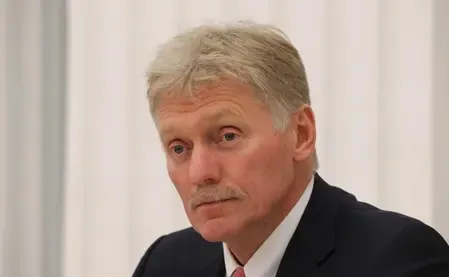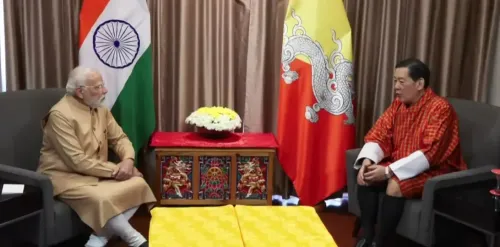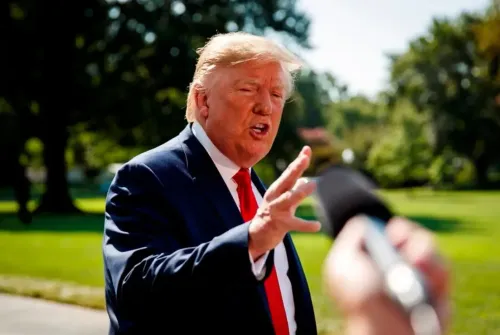Is Russia Prepared to Enforce START Restrictions if the US Acts Accordingly?

Synopsis
Key Takeaways
- Russia is ready to enforce START limitations within a year.
- Reciprocal actions from the United States are necessary.
- The discussions about the treaty took place during meetings between Putin and Trump.
- The START treaty is set to expire in February 2026.
- The treaty plays a crucial role in ensuring global stability.
Moscow, Sep 23 (NationPress) On Monday, Russia declared its readiness to implement quantitative limitations on the Strategic Offensive Arms (START) within a year, contingent upon a reciprocal stance from the United States.
"We are ready to uphold quantitative restrictions for a year. That is our commitment. However, this necessitates a corresponding position from the United States," stated Kremlin spokesperson Dmitry Peskov during a press briefing in Moscow.
Peskov highlighted that discussions regarding the treaty aimed at further reducing and limiting Strategic Offensive Arms occurred during the recent meetings between Russian President Vladimir Putin and US President Donald Trump.
"The subject of the New START Treaty was touched upon during the discussions between Putin and Trump, emphasizing that time is of the essence as we face a potential scenario where bilateral agreements governing stability and security may cease to exist," Peskov remarked in response to a query from Tass news agency regarding the extension of the New START Treaty.
He disclosed that Putin did not propose the idea of extending the START treaty prior to his meeting with the US President.
"On September 22, Putin expressed during a Security Council meeting that Russia is willing to maintain the central quantitative restrictions set forth in the Strategic Arms Reduction Treaty for another year after it lapses in February 2026, but he stressed that Moscow's adherence to the START restrictions hinges on similar actions from Washington," reported Tass.
Peskov also mentioned that there is no definitive date established for the next meeting between the two leaders.
"There is currently no clear understanding regarding the date of the next engagement between the two presidents," Peskov informed Russia's state-owned news agency.
As per the US Department of State, the Treaty between the United States and the Russian Federation on Measures for Further Reduction and Limitation of Strategic Offensive Arms, known as the New START Treaty, bolsters US national security by imposing verifiable limits on all Russian deployed intercontinental-range nuclear weapons. Both nations have consented to extend the treaty until February 4, 2026.









